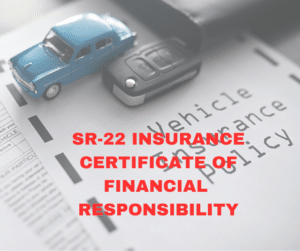Court-ordered
Depending on the type of criminal charge you were convicted of or plead to, the court may have ordered you seek an evaluation and file it with probation. This happens frequently when someone is convicted of:
Assault (where alcohol/drugs was involved)
Public Intoxication
There are many other crimes that could require an evaluation. Often, it depend on the facts of the case. Additionally, the court may order you to do more than one type of evaluation and/or class.
Attorney Recommended
The better scenario for a chemical dependency assessment/evaluation is when your defense attorney uses it proactively. When the facts of your case (i.e. the way the cop wrote up the report) appear that alcohol or drugs were involved, it is important for your attorney to know if there is an issue. Preferably, there is not an issue and that can be used in the negotiation process prior to your case resolving.
Purpose of Evaluation
It is normal to feel uncomfortable about a total stranger deciding whether you have a drug or alcohol abuse issue. After all, the evaluation is happening due to one event in your life. It is tough to feel judged by a single mistake. However, it is important to remember that an evaluation is a broader overview than just the one mistake that landed you in legal trouble.
First and foremost, the evaluation is a clinical tool to determine if someone is struggling with substance addiction. However, it is also used to determine if there might be co-occurring issue that is the primary or underlying reason for alcohol or drug use.
For example, when a person experiences sexual abuse as a child, it is not uncommon to use alcohol/drugs as a way to suppress the shame or memories of such trauma. in that case, mental health counseling might be a better avenue for help so the individual can address the primary reason for substance abuse. In that way, the evaluation is looking not only for the extent of potential substance abuse but also what contributing physical or mental challenges could be contributing to the problem.
Screening vs. Assessment
Typically, there is an initial “screening” in which the evaluator is looking to determine if substance abuse is an issue. They might ask you questions like “have people criticized your drinking?” or “do you feel you need to have a drink first thing in the morning?” Screenings are trying to gauge the extent of drinking or drug use and how the person feels about their use.
For example, if the person being evaluated agrees she is a heavy drinker and is frequently in legal trouble yet has no interest in any intervention, this can help the professional spot relevant issues that will be explored further during the evaluation. During the assessment, questions regarding the extent of alcohol use and treatment avoidance should be expected.
The assessment will be a one-on-one interview in which the evaluator asks some checklist-type questions but also some questions that are relevant to your unique situation. If you are there due to a criminal legal issue, the evaluator will have reviewed your criminal history as well as the police narrative from the current case. The evaluator will be looking for areas of concern such as employment issues, criminal charges, family conflicts/consequences, and physical/medical concerns.
Preparation
We have covered this topic in numerous past blogs. Suffice to say, be prepared for some personal questions about your use of alcohol and drugs. Additionally, be prepared to submit a UA so that your urine can be tested for substances. If you attempt to alter the results by using supplements or diluting your urine by consuming a lot of water, your UA sample will be presumed positive. Additionally, alcohol will be detected for many days so, if you plan to drink at a party on Friday, be prepared that your UA the next week will be positive. If you have concerns about a positive UA result, during your evaluation, discuss the matter with your attorney as soon as possible.
If you are facing a DUI or other criminal charge in Kitsap or Thurston counties or the cities in those areas, please reach out to one of our experienced attorneys for a consultation. We are here 7 days a week to help. (360) 792-1000

Get help now
Whether you choose to handle your case alone or engage the Witt Law Group, being informed and prepared is essential. Early involvement of an attorney can significantly impact your chances of a fair recovery, allowing you to focus on healing while we handle negotiations with insurance adjusters to secure fair compensation for your injuries.




